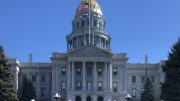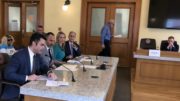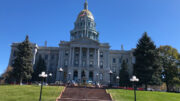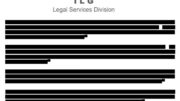By Jeffrey A. Roberts
CFOIC Executive Director
The death of a House bill Wednesday likely means the continuation of a trend among Colorado law enforcement agencies to encrypt all of their radio traffic.
As introduced, the legislation would have required state and local agencies to broadcast dispatch communications without encryption, allowing members of the public to monitor all but tactical and investigative channels, as they have been able to do for decades until recently.
But not even amendments that removed the bill’s mandates, replacing them with a list of policy considerations for government entities, could save House Bill 19-1235 from being killed in the House Transportation and Local Government Committee.
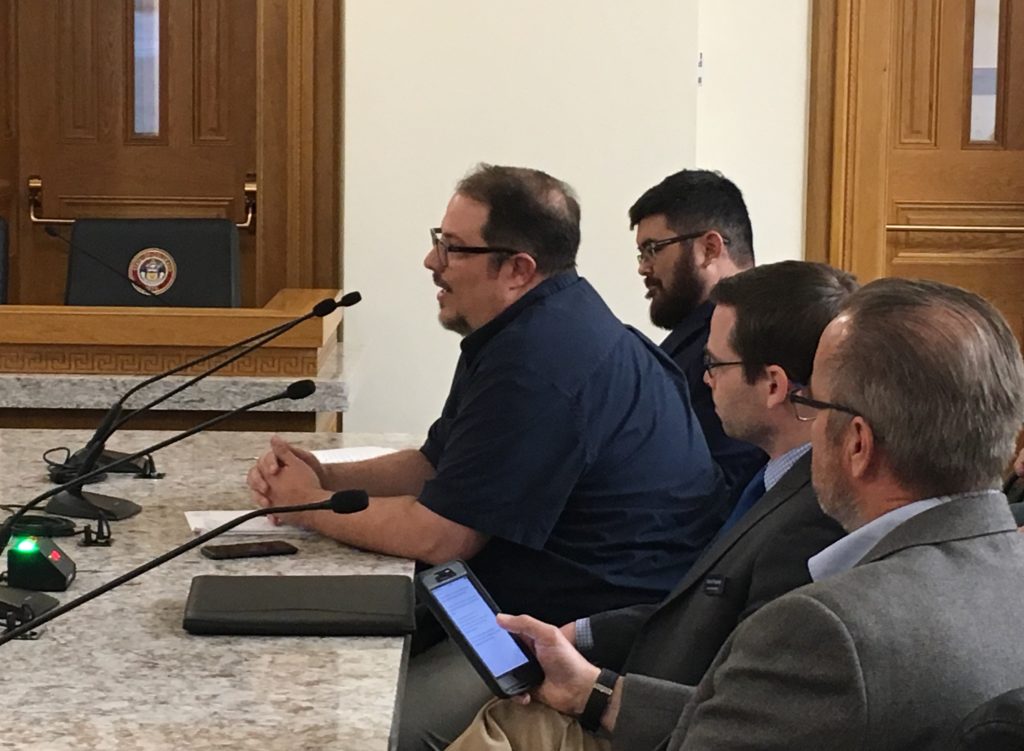
“My vote is basically ensuring the safety of our officers,” said Rep. Rochelle Galindo, D-Greeley, after several law enforcement officials testified that the measure would put officers at risk because criminals might be listening to unencrypted scanner traffic using smartphone apps. Unencrypted channels, they said, also allow private information to be publicly broadcast and possibly used to steal identities.
But Rep. Alex Valdez, D-Denver, framed the issue differently when he expressed support for HB 19-1235.
“We all care about the safety of our first responders. What I did not hear today were any incidents that were caused by the monitoring of a scanner,” he said. “… This is a system that’s been in existence for a very long time. We don’t need to see it encrypted. It is my firm belief that clear and transparent equals trust. The public deserves that.”
The Denver Police Department is the latest among 30 or more Colorado law enforcement agencies that have encrypted their radio communications or have announced their intention to do so. Police radio silence makes it harder for news organizations to cover breaking news and to let the public know to avoid potentially hazardous areas where there’s been a shooting, a fire or some other incident.
“It’s such a crucial tool for what we do,” said Mitchell Byars, a reporter for the Daily Camera in Boulder. He told lawmakers about two instances in which information gleaned from scanner traffic let the newspaper quickly inform parents about school lockdowns that happened shortly after the high school shooting in Parkland, Fla.
“And it’s not just those big things. I can’t tell you how much of my job every day is just answering people who want to know why they see three cop cars in front of their neighbor’s house or they see smoke and is that a fire or is that a controlled burn? A lot of those questions we’re able to answer because of the scanner. We’re able to give people that peace of mind and let them know what’s going on in their community.”
Matt Sebastian, a senior editor at The Denver Post, told committee members that journalists listen to police radios as part of their public watchdog function. “The police are public servants and what they do is in the public interest,” he said. “And they’re taxpayer-funded. One of the greatest ways we can understand how they operate and what they’re doing is by hearing those operations in real time.”
Some, but not all, agencies that have encrypted their communications have provided radios to news organizations – either free or at their cost – so they can continue to listen in. But even if every Denver-area department agreed to do that, a news organization would need three or four dozen radios, which could cost up to $4,000 apiece, “to reliably listen in to all of those agencies,” said Robert Wareham, a lawyer who helped Rep. Kevin Van Winkle, R-Highlands Ranch, craft the bill and a similar measure that failed last year.
“These channels have been in the clear for over 100 years and yet nobody cited a single incident where someone was injured,” he testified.
But a police radio is “not a public communications tool,” contended Mark Smith, deputy chief of the Colorado Springs Police Department. “The police radio is an operational too, a survival tool, a lifeline among officers and dispatch. The last thing our officers should be worried about in a dangerous, rapidly evolving situation is whether the suspect knows exactly what we are doing.”
Amendments added to the bill before it died on a 9-2 vote would have required government entities to consider certain issues when developing a radio encryption policy and to seek input from the news media and the public. But a policy wouldn’t have been necessary for those entities that encrypted traffic before the bill’s effective date.
Follow the Colorado Freedom of Information Coalition on Twitter @CoFOIC. Like CFOIC’s Facebook page. Do you appreciate the information and resources provided by CFOIC? Please consider making a tax-deductible donation.

